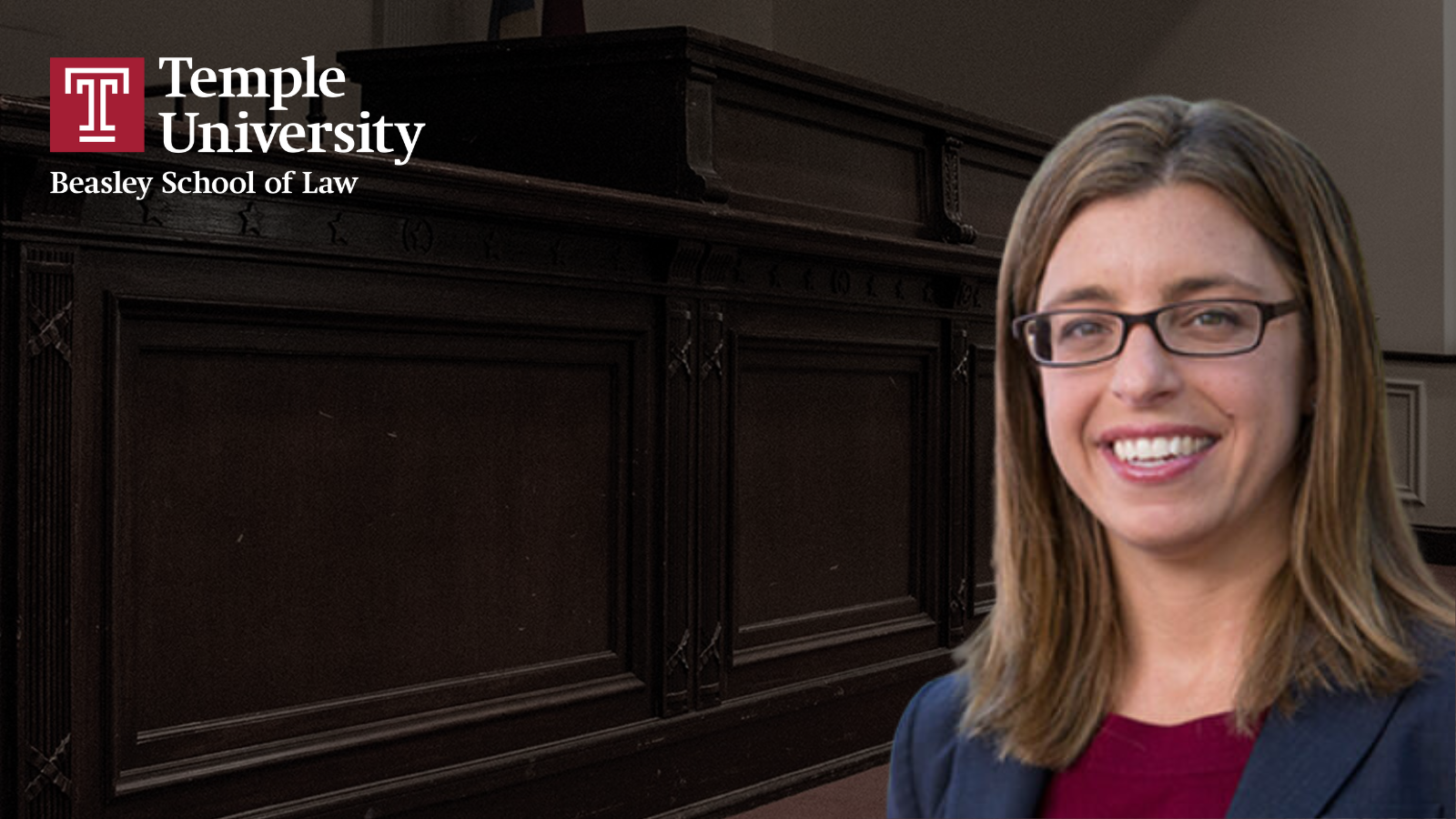A New York grand jury has indicted former President Donald Trump on fraud charges, marking the first time in US history that a former or current president has faced criminal charges. Professor Lauren Ouziel, a former federal prosecutor who teaches and writes about criminal law and criminal procedure at Temple Law, explains what’s happened so far and what’s likely to happen next.
Temple Law School: How do indictments work?
Lauren Ouziel: A grand jury, which is a group of randomly selected people (in New York, the group is composed of 23 people), meets to hear the testimony of witnesses and review any documentary evidence. At the close of the presentation of evidence, the prosecutors will usually then present the grand jury with a proposed indictment containing the charges against the defendant. The grand jury then deliberates and considers whether there is probable cause to believe the defendant committed the crimes charged in the indictment. The grand jury then votes, and if at least 12 of the grand jurors vote in favor, the indictment is issued.
TLS: What charges does this indictment include?
LO: The charges are for falsification of business records with intent to defraud and conceal another crime (the other crime or crimes are not specified). There are 34 counts, each for a separate records falsification, but all relate to the same overall scheme. In addition, the prosecutor filed a statement of facts with the court, which explains more about the evidence and connects the evidence to the charges filed in the Indictment. That document also doesn’t specify the other crime or crimes, though it describes a scheme to suppress information relevant to the 2016 election and states that Trump and the other participants “violated election laws” and “took steps that mischaracterized, for tax purposes, the true nature of the payments made in furtherance of the scheme.” So it appears that election law violations (state, federal, or possibly both) and tax fraud are the other crimes.
TLS: Any thoughts on the strength of the case against former President Trump?
LO: Assuming the facts in the statement of facts are proven, the evidence that Trump falsified business records seems very strong. That conduct alone is a misdemeanor. Prosecutors have charged a felony, which requires proof that the falsification was done with intent to defraud and conceal another crime. The hurdle for prosecutors is tying the falsification to another crime. It’s more of a legal hurdle than a factual hurdle – again, assuming the facts in the statement of facts are proven, the evidence that this was done for purposes of the election (rather than, say, to avoid personal embarrassment or familial strife) seems strong. But the legal questions – can the other crime here be a federal crime, or can a federal election form the basis for a state campaign law violation – are untested. The state tax fraud as the “other crime” seems a more straightforward legal theory, but the statement of facts didn’t include enough information to allow us to discern the strength of the evidence supporting that theory. Prosecutors may have evidence of intent to commit tax fraud, but they haven’t disclosed it yet.
TLS: What are former President Trump’s options in response to the indictment?
LO: He can move to dismiss the indictment on the ground that, even assuming the alleged facts can be proven, they do not constitute a prosecutable offense. Or he can wait and make those arguments later on in the process. He can take the case to trial, where he can dispute not only the legal theory of liability but the factual allegations as well. He can also of course choose at any time to plead guilty to the charges, but he seems to have no intention of doing so.
TLS: What does the process look like going forward?
LO: There will almost certainly be a motion to dismiss. Also coming down the pike is discovery, which is the process by which the parties share with each other the evidence they will use in the case. At some point the judge will calendar the case for trial.
TLS: Any thoughts on likely legal strategies for prosecution and/or defense?
LO: The prosecution is keeping maximum flexibility by not specifying in the indictment which underlying crimes Trump allegedly sought to conceal by falsifying his business records (Manhattan District Attorney Alvin Bragg explained New York law does not require him to specify the underlying crimes). However, the prosecution must prove Trump acted with intent to commit or conceal another crime, and the defense is likely to focus its attention there—rather than on the evidence of the payments and falsified records themselves. The defense will likely also seek to assert a statute of limitations defense (arguing that too much time has passed since the events in question took place).
TLS: Does this indictment impact any of the investigations into former President Trump in other jurisdictions?
LO: Not in a legal sense. The charges stem from conduct prior to and immediately following the 2016 election, whereas the other investigations concern conduct surrounding the 2020 election and its aftermath.
TLS: If convicted, could former President Trump serve time in prison?
LO: The charges carry the possibility of a prison sentence, but for a Class E felony in New York judges have an option to impose a penalty other than prison. The sentence imposed is ultimately a matter for the judge to decide.
TLS: Would a conviction impact former President Trump’s eligibility to run for office?
LO: Nothing in the Constitution makes a convicted felon ineligible for the Presidency.


